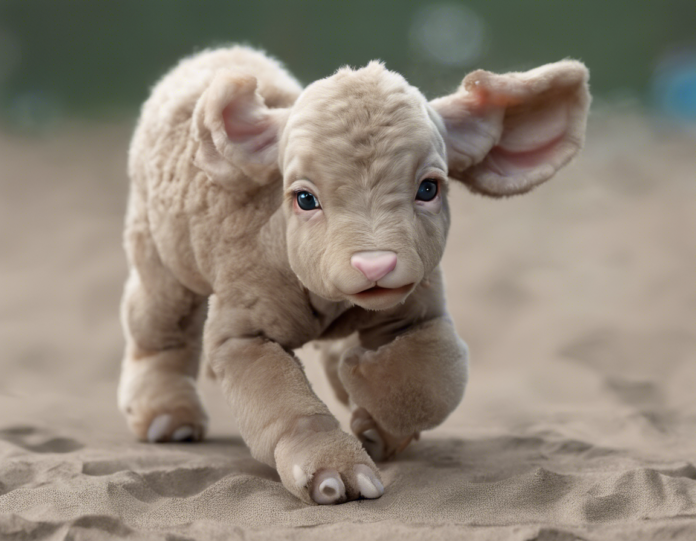Introduction
Welcoming a new puppy into your home is an exciting and rewarding experience. Baby Jeeters, or puppies, require special care, attention, and love to ensure they grow into happy and healthy adult dogs. In this guide, we will cover everything you need to know about caring for your new furry friend, from nurturing their physical health to fostering their emotional well-being.
Choosing the Right Puppy
Before bringing a Baby Jeeter into your home, it’s important to consider factors such as breed, size, and energy level. Different breeds have unique characteristics and temperaments, so it’s essential to choose a puppy that aligns with your lifestyle and preferences. Keep in mind that puppies require a lot of time, patience, and training, so be sure you’re ready for the commitment.
Preparing Your Home
Puppies are curious and love to explore their surroundings. Before bringing your Baby Jeeter home, make sure to puppy-proof your living space. Remove any toxic plants, electrical cords, and small objects that your puppy could potentially ingest. Designate a cozy and secure area for your pup to rest and sleep, such as a comfortable dog bed or crate.
Nutrition and Feeding
Proper nutrition is crucial for the growth and development of your Baby Jeeter. Choose a high-quality puppy food that is specifically formulated to meet their nutritional needs. Feeding schedules may vary depending on the puppy’s age and breed, so consult your veterinarian for personalized recommendations. Always provide fresh water for your puppy to stay hydrated.
Training and Socialization
Early training and socialization are key to raising a well-behaved and confident dog. Teach your Baby Jeeter basic commands such as sit, stay, and come, using positive reinforcement techniques like treats and praise. Expose your puppy to different environments, people, and animals to help them build social skills and reduce anxiety.
Exercise and Playtime
Puppies have lots of energy and require regular exercise to stay healthy and happy. Take your Baby Jeeter for daily walks, engage in interactive play, and provide stimulating toys to keep them mentally and physically active. Be mindful of your puppy’s limitations and avoid overexertion, especially with young or small breeds.
Grooming and Hygiene
Maintaining good grooming and hygiene practices is essential for your Baby Jeeter’s overall well-being. Brush your puppy’s coat regularly to prevent tangles and mats, trim their nails to a safe length, and clean their ears to prevent infections. Introduce your puppy to bathing and brushing early on to make grooming a positive experience.
Healthcare and Vaccinations
Regular veterinary check-ups and vaccinations are vital to ensure your Baby Jeeter’s health and prevent illnesses. Establish a vaccination schedule with your vet and keep track of important preventative treatments such as flea and tick control, heartworm prevention, and dental care. If you notice any signs of illness or discomfort, seek veterinary attention promptly.
Building a Strong Bond
Bonding with your Baby Jeeter is an enriching and fulfilling experience that strengthens your relationship and trust. Spend quality time with your puppy through cuddling, training sessions, and playtime to nurture your connection. Establishing a routine and consistent environment helps your puppy feel secure and loved.
Frequently Asked Questions (FAQs)
- When should I start training my Baby Jeeter?
-
It’s best to start training your puppy as soon as you bring them home, usually around 8-10 weeks of age. Early training sets the foundation for behaviors and manners.
-
How often should I groom my puppy?
-
Grooming frequency depends on your puppy’s coat type and length. In general, brush your Baby Jeeter at least a few times a week, and schedule professional grooming as needed.
-
What vaccinations does my puppy need?
-
Core vaccinations for puppies typically include distemper, parvovirus, adenovirus, and rabies. Your vet can recommend additional non-core vaccinations based on your puppy’s environment and lifestyle.
-
How can I help my puppy adjust to their new home?
-
To help your Baby Jeeter feel comfortable in their new environment, provide a safe space with familiar scents, toys, and bedding. Establish a routine for feeding, potty breaks, and playtime to create a sense of security.
-
What is the best way to potty train my puppy?
- Consistent potty training involves positive reinforcement, frequent trips outside, and establishing a routine. Be patient and reward your puppy for successful potty breaks to reinforce good behavior.
In conclusion, caring for a Baby Jeeter requires dedication, patience, and love. By providing a nurturing and supportive environment, you can help your puppy thrive and become a cherished member of your family. Remember to prioritize your Baby Jeeter’s physical and emotional well-being through proper nutrition, training, exercise, grooming, and healthcare. Enjoy the journey of raising your puppy and creating lasting memories together.









